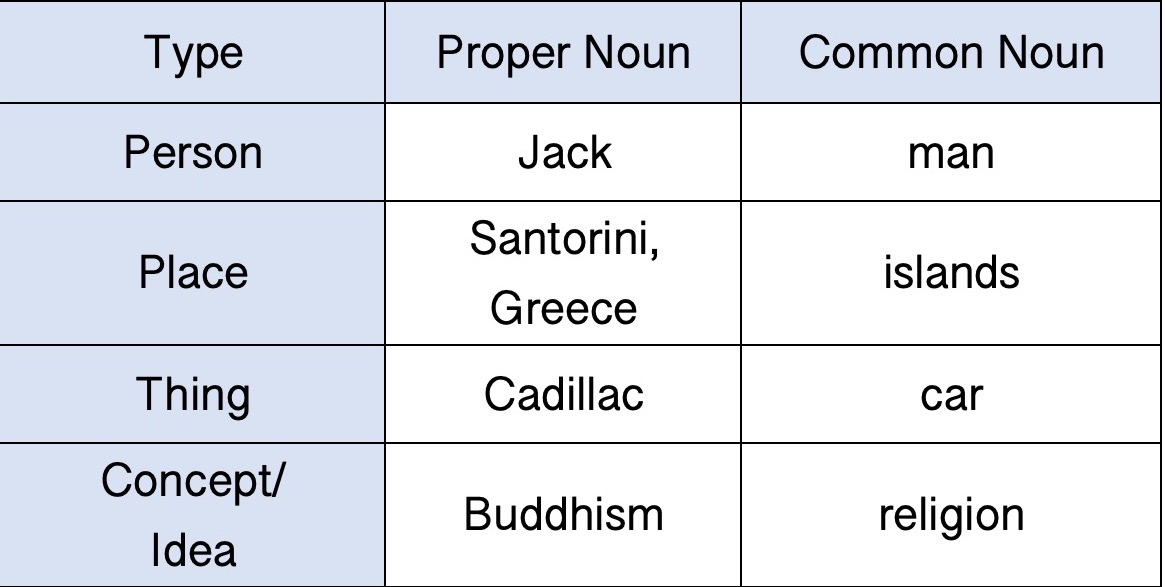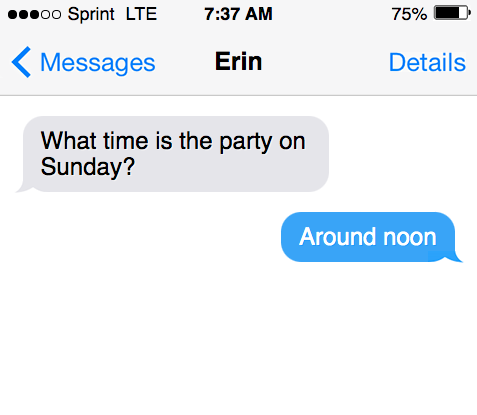Are the days of the week capitalized? What’s the grammar rule when it comes to writing the days of the week in a sentence?
If days of the week are capitalized, does that mean the months of a year are as well? What about the names of seasons, or holidays?
Keep reading to find out the answers to the above questions; including whether or not to capitalize days of the week, and more.
Are days of the week capitalized?
Grammar rules: Yes, the days of the week are capitalized.
The rules of capitalization seem obvious, but as it turns out, learning when and when not to capitalize in a sentence is more confusing than it may appear at first glance. In the English language, the days of the week are capitalized since each day of the week is what’s known as a proper noun.

What are days of the week in grammar?
Since each day of the week is a proper noun, we write each day of the week using capital letters. No matter where proper nouns show up in a particular sentence, its initial letter remains capitalized
Grammar rules:
- First rule: All proper nouns take on a capital letter.
- Second rule: The days of the week are proper nouns; therefore, capitalize the days of the week in any sentence.
What are proper nouns, and why are they capitalized?
A proper noun names a specific person, place, thing or idea.
“My brother James stole from the cookie jar.”
See in the sentence above, proper nouns specify and define the exact subject mentioned in the sentence, and they work in particulars. In this way, proper nouns are definite; they single out precisely what is referenced from everything else in existence.
Reflecting on the grammatical weightlifting that proper nouns carry in grammar, they’re a pretty impressive function and feat of the English language!
Common nouns vs proper nouns
Proper nouns are contrasted by common nouns or general nouns, which mention a noun from a broad category or type.
See the chart below that illustrates key differences between common nouns and proper nouns (and their correct capitalization rules!)

What’s a common noun?
A common noun refers to a class, category or type of person, place, thing or idea.
See from the example above that the name Jack uses a capital letter, but the word man is written in lowercase letters. That’s because a person’s name is a proper noun and is therefore written in capital letters. The word man, on the other hand, is a general term that refers to a broader category, i.e., types of people/human beings: man, woman, women, men, babies, children and so forth.
Similarly, in the second example, the word island or islands don’t need to be written in capital letters since islands are common nouns. Santorini, on the other hand, requires capitalization since Santorini is the name of a specific place and island in Greece, and is therefore a proper noun.
10 examples of sentences capitalize days of the week:
Sentence examples that correctly punctuate the days of the week
- Tom scheduled the annual meeting for next Monday.
- Carly’s late arrival at the baby shower on Friday went unnoticed by the rest of party attendees, luckily for her.
- Sunday is when the new cinema will open.
- Thursday’s and around the holidays are the busiest times to go shopping.
- My mother’s birthday is coming up this Saturday.
- Ashley is coming on Friday from Toronto, and we’ll pick her up from the airport.
- Usually I work from 9 a.m. to around 6 p.m. on weekdays, from Mon.-Fri.
- I will call you next Saturday so that we can close the deal.
- I will call you on Tuesday so that we can finalize the deal.
- I usually have a hard time waking up on Monday after a long night out..
- The assignment is due Wednesday, and I still have not started my research.
In each sentence above there is uniformity amongst all the words that contain a capital.
The starting letter of each sentence uses a capital letter. All proper nouns are capitalized: Tom, Carly, Ashley.
Abbreviations for the days of the week should also always be capitalized. For example, Mon., Tues. and Wed. are all short forms of the days of the week, and require capitalization. Acronyms which use single letters to represent entire words in succession are also always capitalized.

Other capitalization rules
Besides capitalizing the days of the week, where else does the first letter of a word need to be capitalized? Do we use capital letters to quote someone in a sentence, or to start a list? What other rule of capitalization is relevant in writing?
General rules recommend of punctuation suggest to automatically capitalize the first letter in the following sentences/use cases:
- The start of a new sentence always begins with the first letter capitalized.
- The first person pronoun uses the capital I: “I went to the grocery store.” “I went to pick him up from the airport.”
- Article titles are capitalized, such as, “Are Days of the Week Capitalized?” is an article on the website GrammarBrain, and so it should use capital letters.
- Proper nouns such as the titles of novels, books and movies are written in capitals and italicized.
- See the following sentence: Any Given Sunday is a film directed by Oliver Stone and stars Al Pacino, Jamie Foxx and Cameron Diaz.
- A few proper nouns like holidays and the months of the year are also capitalized.
- The first non space character in a quoted sentence uses a capital.
- Acronyms and abbreviations are capitalized, such as trademarks that use just one word to represent a company or brand name.
- NASA is an abbreviated form of the American government organization National Aeronautics and Space Administration (NASA)
- Week days have their own abbreviated forms, which are similarly capitalized.
Certain criteria and style manuals recommend capitalizing the initial letter after a colon. While each style guide has their own rules and criteria, The Chicago Manual, for example, suggests capitalizing after a colon where two independent clauses or complete sentences follow a colon.
Are the names of seasons or holidays capitalized?
While it might seem counterintuitive, the names of seasons are considered common nouns, and so write the names of seasons in lowercase.
In Review
Q: Are days of the week capitalized?
Answer: Yes, each day of the week is a proper noun, and proper nouns use capital letters.
No matter where the days of the week appear in a sentence, even if they appear multiple times, they are capitalized. If the day of the week is used to start a sentence, naturally the starting letter is in capitals.
If days of the week is the first word used within a quotation or quoted sentence: capitalize. If the initial words on a list or bullet are the days of the week: capitalize.
The days of the week appears in the title of a book or article? Capitalize. Interestingly, in this case, it would be a compounded proper noun; as both titles and weekdays are proper nouns.
First rule: Capitalize days of the week because they’re proper nouns; and each day of the week specifies a single point in time, or in this case: a single date in the history of all dates. See this sentence:
“This Monday September 19, 2022, I wrote an article on whether to capitalize the days of the week.”
Essentially, anytime days of the week come to mind: capitalize.
Check out a previous article!
Want to continue learning the different rules of grammar? This is the ‘write‘ place! Find out if the seasons capitalized, or the rules for using a colon!
Click to share previous article, or read up on the next article to learn be a better writer, faster.
Glossary
Sources
Inside this article
Fact checked:
Content is rigorously reviewed by a team of qualified and experienced fact checkers. Fact checkers review articles for factual accuracy, relevance, and timeliness. Learn more.
Core lessons
Glossary
- Abstract Noun
- Accusative Case
- Anecdote
- Antonym
- Active Sentence
- Adverb
- Adjective
- Allegory
- Alliteration
- Adjective Clause
- Adjective Phrase
- Ampersand
- Anastrophe
- Adverbial Clause
- Appositive Phrase
- Clause
- Compound Adjective
- Complex Sentence
- Compound Words
- Compound Predicate
- Common Noun
- Comparative Adjective
- Comparative and Superlative
- Compound Noun
- Compound Subject
- Compound Sentence
- Copular Verb
- Collective Noun
- Colloquialism
- Conciseness
- Consonance
- Conditional
- Concrete Noun
- Conjunction
- Conjugation
- Conditional Sentence
- Comma Splice
- Correlative Conjunction
- Coordinating Conjunction
- Coordinate Adjective
- Cumulative Adjective
- Dative Case
- Determiner
- Declarative Sentence
- Declarative Statement
- Direct Object Pronoun
- Direct Object
- Diction
- Diphthong
- Dangling Modifier
- Demonstrative Pronoun
- Demonstrative Adjective
- Direct Characterization
- Definite Article
- Doublespeak
- False Dilemma Fallacy
- Future Perfect Progressive
- Future Simple
- Future Perfect Continuous
- Future Perfect
- First Conditional
- Irregular Adjective
- Irregular Verb
- Imperative Sentence
- Indefinite Article
- Intransitive Verb
- Introductory Phrase
- Indefinite Pronoun
- Indirect Characterization
- Interrogative Sentence
- Intensive Pronoun
- Inanimate Object
- Indefinite Tense
- Infinitive Phrase
- Interjection
- Intensifier
- Infinitive
- Indicative Mood
- Participle
- Parallelism
- Prepositional Phrase
- Past Simple Tense
- Past Continuous Tense
- Past Perfect Tense
- Past Progressive Tense
- Present Simple Tense
- Present Perfect Tense
- Personal Pronoun
- Personification
- Persuasive Writing
- Parallel Structure
- Phrasal Verb
- Predicate Adjective
- Predicate Nominative
- Phonetic Language
- Plural Noun
- Punctuation
- Punctuation Marks
- Preposition
- Preposition of Place
- Parts of Speech
- Possessive Adjective
- Possessive Determiner
- Possessive Case
- Possessive Noun
- Proper Adjective
- Proper Noun
- Present Participle
- Prefix
- Predicate



